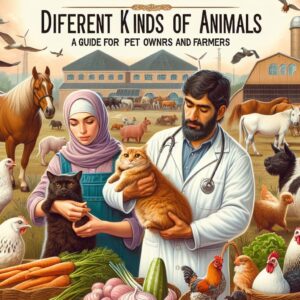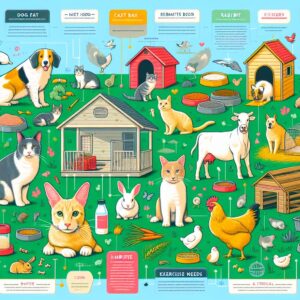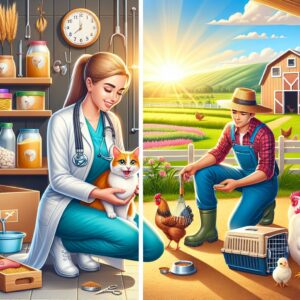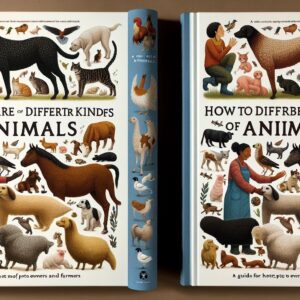Having the privilege of caring for animals is a responsibility that should never be taken lightly. Whether you are a pet owner or a farmer, understanding the individual needs and requirements of different animals is essential. From maintaining their health to providing the necessary care, each creature deserves our attention and compassion. In this article, we will explore the world of animal care and outline important tips and guidelines for pet owners and farmers alike.
Understanding Animal Health
Ensuring the well-being of animals begins with understanding the fundamentals of animal health. For both pets and livestock, regular veterinary check-ups are crucial. These routine visits allow professionals to monitor their overall health, detect any underlying issues, and provide necessary vaccinations. Regular care also includes grooming, dental hygiene, and providing access to a nutritious diet.
Pet Owners: Providing Optimal Pet Care
Different pets require different levels of attention and care. For starters, dogs and cats thrive in environments where they receive ample exercise, mental stimulation, and a healthy diet. Daily walks and playtime allow dogs to burn off energy, while cats benefit from interactive toys and scratching posts to keep them entertained.
Additionally, proper grooming for pets goes a long way. Regular brushing helps maintain a healthy coat, control shedding, and prevents matting. It is also important to trim nails and clean ears to avoid discomfort and infection. Good oral hygiene, such as brushing your pet’s teeth or providing dental treats, can prevent dental issues down the line.
Above all, love and attention are vital for the well-being of our pets. Regular bonding activities and positive reinforcement during training sessions contribute to a strong human-animal bond. This bond leads to a happier, more cooperative pet while providing emotional support to both the animal and the owner.
Farmers: Caring for Livestock
For those involved in agriculture, the welfare of their livestock is paramount. Proper livestock care ensures the health and productivity of the animals while promoting sustainable practices. Maintaining clean and comfortable living conditions, such as well-ventilated barns and adequate bedding, reduces the risk of diseases and infections.
Providing a balanced diet designed by an animal nutritionist is crucial for livestock’s growth and well-being. Different species have varying dietary requirements, so it is essential to consult experts in the field. Access to clean water throughout the day is also vital for their hydration and overall health.
Observing animal behavior is key to identifying any health issues or injuries. Regularly monitoring their body condition, reproductive cycles, and behavior patterns allows for early intervention when necessary. Quick identification and treatment of illnesses or injuries can minimize suffering and reduce the risk of spreading diseases within the herd.
Caring for Injured Animals in the Wild
While we may primarily focus on pets and livestock, our responsibility towards animals extends beyond those in our care. Encountering injured or distressed wildlife is not uncommon, and knowing how to respond is crucial.
If you come across an injured animal in the wild, it is essential to keep a safe distance and avoid unnecessary stress. Contact local wildlife rehabilitation centers or authorities trained in handling such situations. Attempting to care for wild animals without appropriate knowledge and experience may do more harm than good.
Conclusion
Caring for different kinds of animals, whether as a pet owner or farmer, is a privilege that requires dedication and knowledge. Prioritizing animal health, providing optimal care, and seeking professional advice when needed are critical elements. By understanding the specific needs of each animal, we can ensure their well-being and create a harmonious relationship between humans and animals. Remember, the bond we share with our pets and the respect we give to livestock and wildlife defines our role as responsible caretakers in this world.



